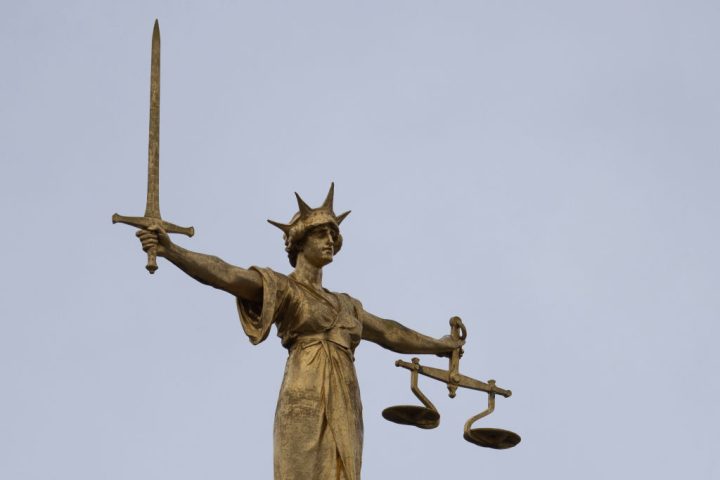The Home Secretary Yvette Cooper has reportedly ‘ordered a review’ of Britain’s counter-extremism strategy. According to the Daily Telegraph, she was minded to treat ‘extreme misogyny’ as terrorism for the first time. It is suggested that the review would be completed later in the autumn, and that a new counter-extremism strategy would be launched early next year.
When discussing this issue, it is tempting to use the terms ‘terrorism’ and ‘extremism’ interchangeably. In law, however, they are not identical and should not be conflated. The definition of terrorism is contained in section 1 of the Terrorism Act 2000 and captures actions, or threats of action, designed to influence the government, or intimidate the public (or sections of the public) where such activities are made for the purpose of advancing a political, religious, racial or ideological cause. Actions and threats covered by section 1 include those which would involve serious violence against a person, endanger a person’s life, or create a serious risk to the safety of the public or a section of the public.
Organisations engaged in terrorism-related activity can be banned by the state. The dissemination of terrorist publications, and the promotion or encouragement of terrorism (including the glorification of terrorism), is also illegal.
By contrast, extremism is less well-defined and somewhat of a catch-all term to encompass potentially lawful activities falling short of terrorism, but which may be a precursor to violent action. In March 2024, the then communities secretary Michael Gove announced a new definition of extremism which encompassed those who:
Promote or advance an ideology based on violence, hatred or intolerance that aims to:
1. negate or destroy the fundamental rights and freedoms of others; or
2. undermine, overturn or replace the UK’s system of liberal parliamentary democracy and democratic rights; or
3. intentionally create a permissive environment for others to achieve the results in (1) or (2).
Government efforts to restrict extremism have a long and unhappy history. There have been several reviews of the government’s ‘Prevent’ strategy designed to stop vulnerable people being drawn into terrorism. Typically, the focus has been on Islamic and right-wing extremists who may be referred to deradicalisation programmes.
In 2016, parliament’s joint committee on human rights produced a detailed report in response to proposals by the then home secretary Theresa May to introduce new legislation to counter extremism. May had sought to introduce a scheme of civil orders which would have allowed the Home Secretary to ban extremist groups and given law enforcement agencies the power to stop individuals engaging in extremist behaviour.
The select committee was extremely skeptical, noting the difficulties of extending the definition of extremism to encompass non-violent activities and the wide array of terrorism and public order offences which applied to those who advocated violence. It suggested that if one took what appeared to be even straightforward examples, such as seeking to prohibit homophobia, or advocating the subservience of women, there might be a conflict of rights. Such a ban could conflict with conservative religious belief (be that Islam, evangelical Christianity or Orthodox Judaism) leading to issues for those expressing otherwise legal religious views.
It concluded that if extremism was to be combated through further legal mechanisms, it would be essential to clarify the definition of extremism and that the government should not legislate unless there was a clear gap in the existing legal framework. Such concerns remain relevant today.
A more recent independent review conducted by Sir William Shawcross earlier this year argued that ‘Prevent must address all extremist ideologies proportionately according to the threat each represents’. Sir William suggested that the current Prevent programme had a ‘double standard’, taking a narrow view of what amounts to Islamist extremism, but taking an ‘expansive’ approach to right wing extremism. He contended that this ‘has been so broad it has included mildly controversial or provocative forms of mainstream, right-wing leaning commentary that have no meaningful connection to terrorism or radicalisation’.
This is perhaps ironic, given the recent violent disorder on our streets. Yet it highlights the general concerns around trying to police speech which falls short of encouraging violence.
None of this is to say that there should not be a further review. Women have good cause to be concerned about some of the misogynistic views expressed online, which are often followed by violent threats of rape, assault or murder, both in cyberspace and on our streets. In July, it was reported that police chiefs had admitted that violence against women and girls was a ‘national emergency’ and was a threat on the same scale as terrorism.
Yet protecting women often seems to have a low priority. The government took a decade to ratify the Istanbul Convention designed to prevent violence against women and girls, while the murder of Sarah Everard by a serving Metropolitan Police officer highlighted a series of other failings by the police.
However, any steps to further limit extremist activities would have to be taken in an even-handed way. Anyone following the fissiparous debates between gender-critical women and their oft-excitable opponents advocating an expansive version of trans rights will have noted a tendency for women to be insulted and threatened in grotesque ways. It is not sufficient simply to identify some ‘misogynistic influencers’ such as Andrew Tate. If the government wants to avoid being accused of hypocrisy, the expression of violent misogynistic views would have to be addressed across the board.
Thankfully, Labour seemingly doesn’t intend on revisiting the idea of fresh counter-extremism laws. Yet there have been suggestions that it may review the recently-introduced Online Safety Act to toughen up its powers if social media companies do not do more to remove harmful content. This ought to be done in a light-touch way. The swift and punitive response to the recent riots demonstrates that the state already has strong powers to punish keyboard warriors – should it choose to use them.
Rather than seek to implement new laws and policies, it would probably be more helpful if we enforced those which we currently have more effectively, impartially and justly. Many might take the view that if the government simply took violence against women more seriously, devoted sufficient resources to this issue and gave a proper steer to our police force, much more could be done.






Comments
Comments will appear under your real name unless you enter a display name in your account area. Further information can be found in our terms of use.